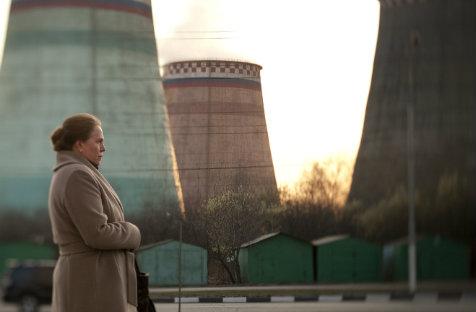There’s a certain style of filmmaking for which European cinema is notorious, which often divides audiences outside the continent. Andrey Zvyagintsev’s latest work, Elena, is as perfect an example of the genre as you could find. Imbued with an almost suffocating sense of stark, everyday stillness, the film offers a rich and immersive experience, but only for people willing to truly dissolve into the story.
Elena (Nadezhda Markina), a middle aged woman from a working class background, is married to Vladimir (Andrey Smirnov), an elderly business tycoon whom she met while working as a nurse 10 years earlier. Their relationship has maintained the subservient structure of their nurse/patient interaction, with Elena spending most of her time facilitating the smooth running of the household and Vladimir’s day while he contends only with his own business. Elena also attempts to help support her son from a previous marriage, Sergey (Aleksey Rozin), a feckless father with a slowly expanding brood. Although Vladimir disapproves of Elena’s assistance of Sergey, his hypocrisy is evident in his spoiling of his own semi-estranged daughter Katerina (Elena Lyadova), a charming but indifferent hedonist. However, the deferential nature of the marriage quickly becomes challenged when Vladimir announces his intention to leave almost all of his assets to Katerina upon his death, forcing Elena to take action.
Elena is an exquisitely crafted film from the very first scene, which runs for over a minute. Filled with crisp, textured lighting and moody colours, the design and cinematography is absolutely gorgeous. A sequence in a Russian orthodox church is a particularly rich example of the visual quality of the film. It’s shot with a gentle smoothness by cinematographer Mikhail Krichmman that is rarely seen nowadays, and is edited with the same care.
It’s also a demanding film. The aforementioned first scene is an artistic challenge to the audience. Anyone patient enough to hold genuine curiosity past the first eight minutes of screen time will fall in love with Elena’s elegance. However, anyone who finds it too long should probably switch off and put on something a little faster. It’s a film for rumination, not escapism.
The performances are of a universally high standard, with Markina exuding repressed tenderness and quiet dignity alongside her character’s obvious sense of denial. Lyadova is in similarly scene stealing form, with Katerina’s scene with Vladimir among the most impressive in the film. Assisted by Philip Glass’ pulsing cello score, the cast brilliantly illustrate the deep emotional well concealed beneath their outward Russian stoicism.
Elena is a clear and depressing signifier of the pervasive oligarchical structure still infecting contemporary Russian society, encased discreetly within a small story about the unyielding bond of maternity. With its cold atmosphere and slightly fatalistic outlook, it’s almost like a visual manifestation of 19th century Russian prose. There’s a subtle background motif of women carrying out the daily chores in lowly positions while men hold the higher office – at the hospital, the gym and even at the solicitor’s office. The limitations of such an overwhelmingly patriarchal society could seemingly justify Elena’s behaviour. After all, how else is she meant to take control? Yet the textured ambience of the screenplay manages to render any moral statements ambiguous. It is for the viewer to decide.
All in all, it’s beautiful, but probably only for European film devotees.
Extras include the film’s trailer and an in depth interview with director Andrey Zvyagintsev, which will largely appeal to technically minded film buffs more than the casual arthouse lover.
Rating: 4 stars out of 5
Elena
Directed by Andrey Zvyagintsev
Russia, 2011, 109 mins
Madman Entertainment
Rated M
Actors:
Director:
Format:
Country:
Release:





